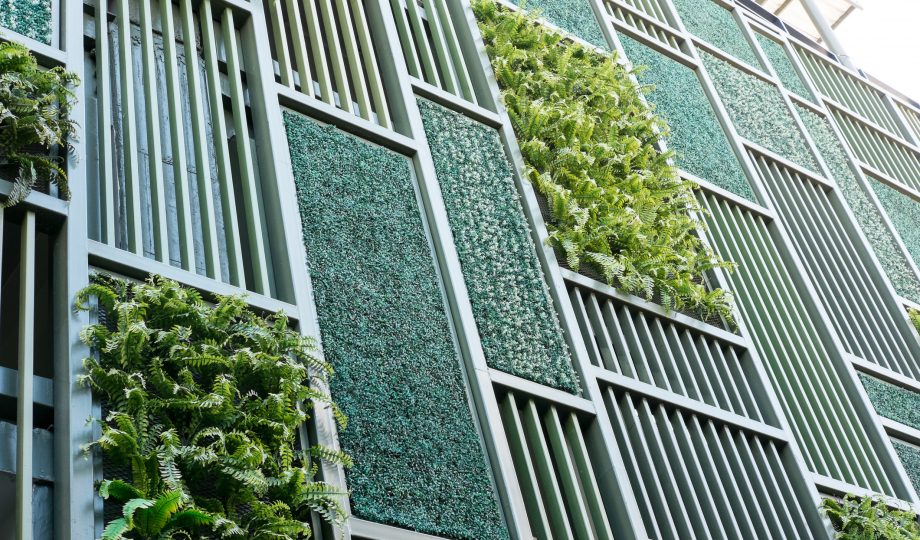Groundbreaking report highlights why real estate businesses can’t afford not to invest in sustainability.
The World Green Building Council (WorldGBC), a global network accelerating sustainability and decarbonisation in the building and construction sector, has spoken out on the need to drive investment in a sustainable built environment by launching a new flagship report, Beyond the Business Case, at COP26 in Glasgow.
In the lead up to Cities, Regions and Built Environment Day at COP26 on 11 November 2021, the report Beyond the Business Case provides a timely and unique perspective for decision makers to accelerate the industry’s sustainability transformation by capitalising on the economic opportunities, addressing risk mitigation and importantly, also embracing the social value case.
This report draws from and embraces the rapidly growing sustainability agenda across the built environment. It looks at the evolving scope of sustainability, the broadening of what is called ‘green’ and closer alignment with the UN’s Sustainable Development Goals and the rise in social value as not just a consideration, but a business driver for developers and investors.
The report demonstrates a series of benefits for investing in a sustainable built environment, across both the financial and social value case, as follows:
Social benefits, to building occupants through health, productivity and wellbeing.
Lower or equivalent costs at supply chain, construction, and operational phases.
Risk mitigation, providing resilience to inevitable climate impacts, environmentally and financially, as well as future-proofing against legislative changes or corporate expectations and reputational risk.
Higher asset values linked both to performance and asset desirability
Investment opportunities through a rapidly transitioning finance sector protecting investments, supporting share prices and increasing requirements on Environmental, Social, and Governance (ESG) reporting.
Access to finance due to availability of finance for green buildings, from banks, bonds and institutional investors.
All of the findings are supported by evidence-based research through innovative case studies which bolster both the current, and future, business case for a sustainable built environment.
A key innovation of the report is the analysis of climate-science-aligned 2050 scenario modelling, proving that there is a stronger value proposition for investment in sustainable and quality real estate today. This is presented against a backdrop of recent trends. For example, wellness in real estate is projected to rise to a $198bn industry in 2022, heightening demand for healthy, sustainable spaces.
The report makes the point that a powerful and up-to-date business case is essential to drive investment into green, sustainable buildings. With the built environment being responsible for 75% of annual global greenhouse gas emissions and real estate alone accounting for 37%, plus 40-50% of global resources extraction, the critical requirement for enhancing sustainability in the sector is undeniably clear.
For the development of new buildings and the required upgrades of existing ones, the financial input will be monumental. New sustainable buildings alone are set to represent a $24.7 trillion investment opportunity in emerging markets alone by 2030, so tackling barriers to mass market engagement is essential.
WorldGBC unpacks the financial business case to explore drivers including the Nationally Determined Contributions (NDCs), or country climate pledges within the Paris Agreement, regulatory change such as the European Union’s taxonomy and the rise in sustainable finance and the growth of Environmental, Social, and Governance (ESG) reporting.
Beyond the Business Case also outlines reasons for the optimal economic opportunity from green assets, including greater access to investment, corporate reputation, higher asset value and investment resilience, lower build and operational costs and return on investment through occupant productivity.
The report was developed by the WorldGBC global network, with collaboration and support from a development task force including the Laudes Foundation, WSP, Johnson Controls, Buro Happold, Saint-Gobain, Mott Macdonald, Foster + Partners, Kingspan, SOM, CBRE, Lendlease, Institute for Human Rights and Business and other Green Building Councils around the world.
Cristina Gamboa, CEO of World Green Building Council, said: “We recognise the need for a compelling value proposition for all actors across the global real estate sector, as well as the increasing importance of social value. People must be put at the heart of the business case, particularly in light of the Covid-19 pandemic, which continues to challenge us.
“Real estate alone accounts for 37% of annual global greenhouse gas emissions. Therefore, our report inspires urgency, but urgency with optimism. We champion an achievable transformation that brings future climate scenarios into today’s business decision making, demonstrating total clarity on why no business can afford not to embrace sustainability in real estate.”
The post Making the social value case for greener buildings appeared first on Infrastructure Global.

